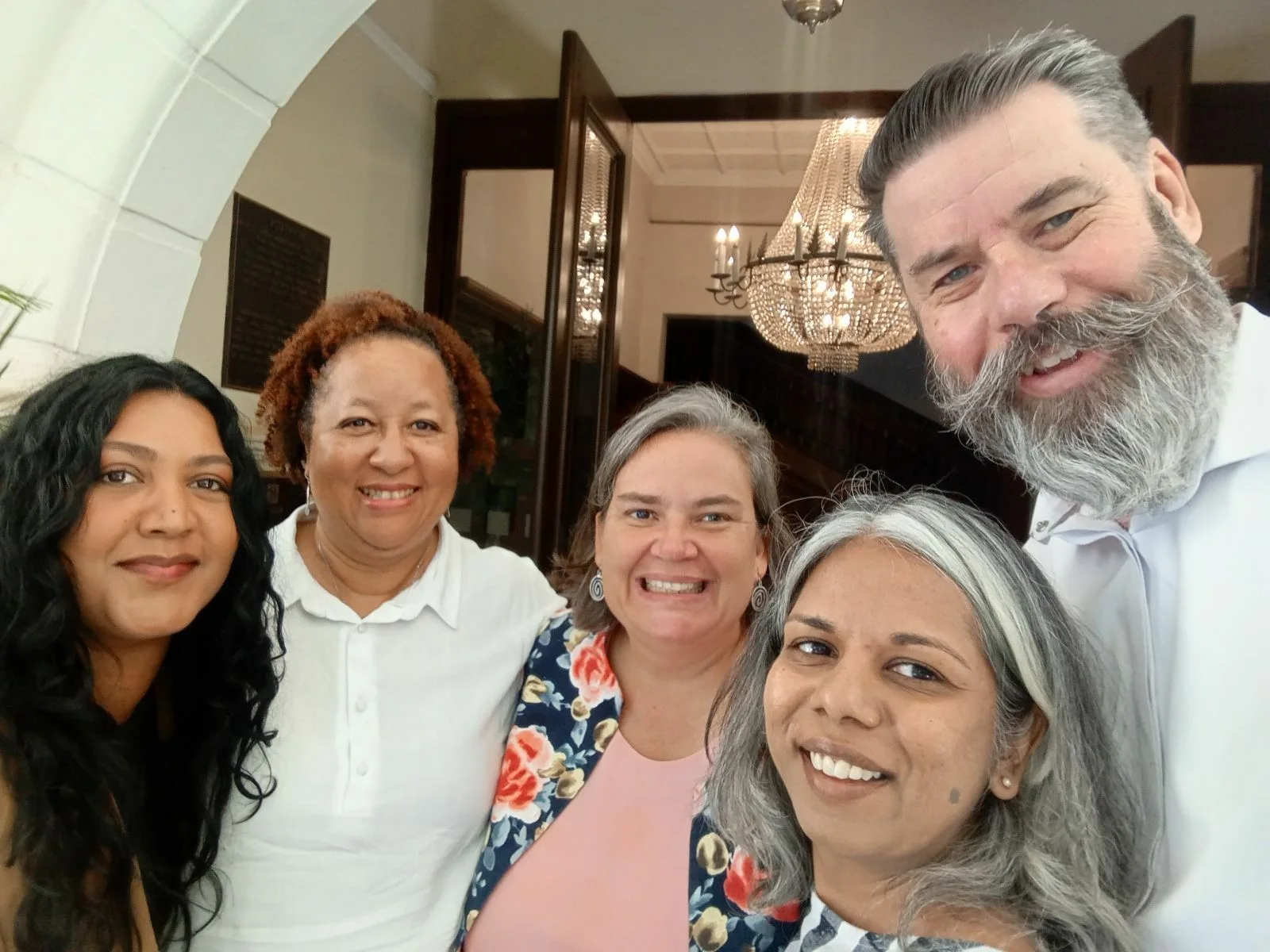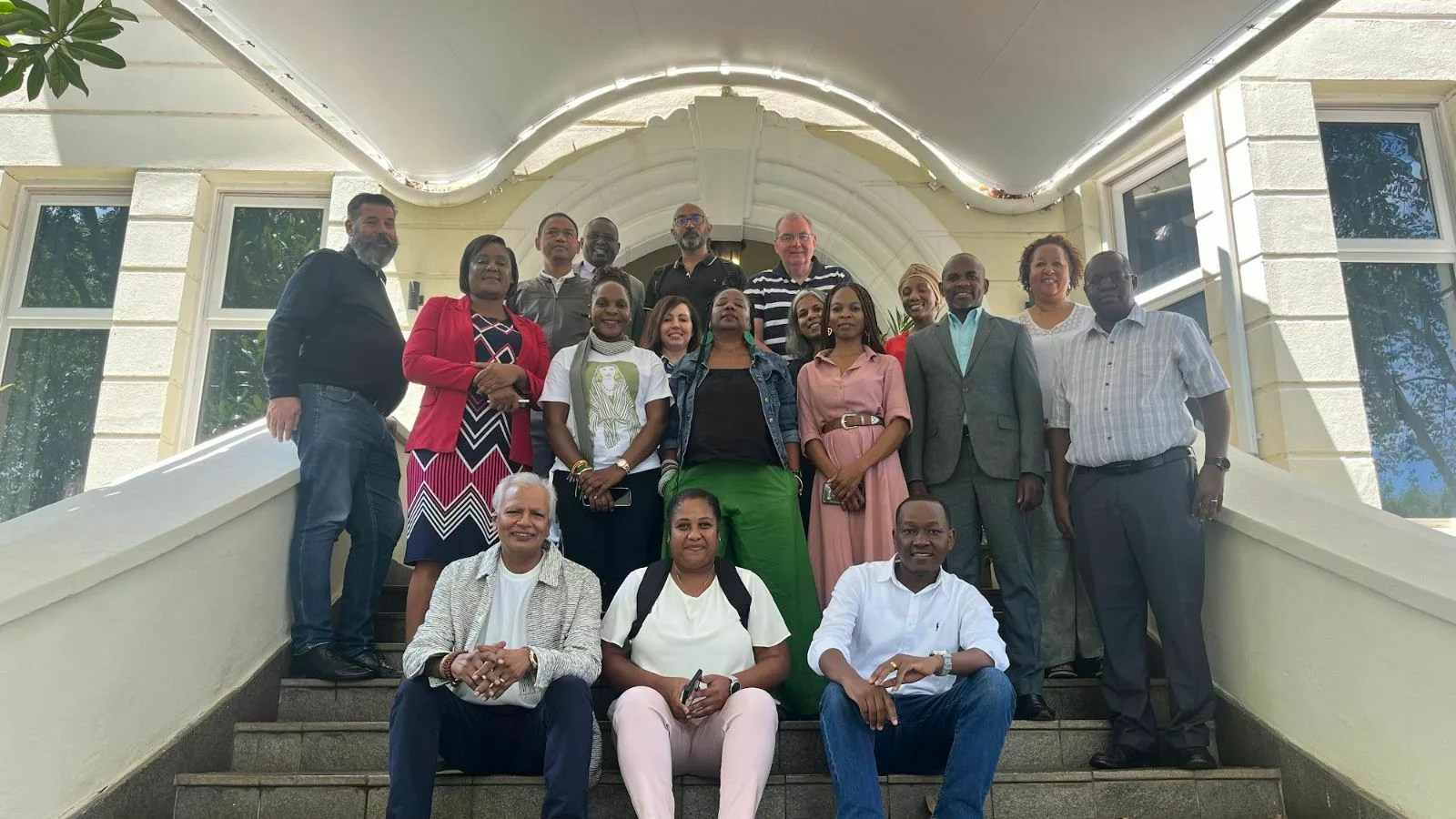Flow’s media training team interacts with a wide spectrum of clients, from big corporates to regional and continental bodies, to sports stars and even diplomats. They’re always amazing – always – but few are as close to our hearts as ECOFISH.
ECOFISH is a relatively little-known – but vitally important – European Union-funded initiative to promote sustainable fisheries in the western Indian Ocean and inland in Africa (such as on Lakes Victoria and Tanganyika). Strong fisheries support economic prosperity, sustainable resources and communities, and food and nutrition security.
We first met ECOFISH – which brings together such bodies as the Southern African Development Community (SADC), the Common Market for Eastern and Southern Africa, the Intergovernmental Authority on Development (IGAD), the East African Community, the Indian Ocean Commission and the SADC-African Development Bank initiative ProFishBlue – in 2023.
Over two days we provided the ECOFISH contingent with our standard media training, which includes such elements as understanding the media landscape, news values, interview theory and on-camera mock interviews. We were struck not just by what our delegates were doing for Africa and the Indian Ocean islands, but by their infectious passion for their work; we loved the idea of supporting them to do what they do.
So when the media trainers received word that we were to work with ECOFISH once again, we were very excited. We also had our work cut out for us – because not only did we have to devise all-new content for them, the training was now taking place over three days! (It’s rare that we are booked for a single group for that long.)
This time, the focus of the training was on storytelling. While telling a great story is an essential part of all media training we offer, we had to delve much deeper than usual for ECOFISH. Flow’s brief was to help the attendees master various storytelling techniques, strengthen their connections with peers from other organisations, and develop a common narrative to promote sustainable fisheries in Africa.
In particular, ECOFISH requested that we provide practical skills on leveraging media interview opportunities to tell stories, writing impactful press releases, telling stories on podcasts and exploiting social media for storytelling.

To fulfil our mandate, we expanded our core team: as well as regular media trainers Thrishni Subramoney, Edwina van der Burg and myself, we were joined by social media specialist Bianca James and Flow CEO Tara Turkington. And as always, rounding out our team was South African broadcasting legend David O’Sullivan, who taught the delegates about podcasting, the newest arrow in his impressive media quiver.
Apart from group exercises, where the attendees took turns to hone their storytelling, and on-camera, behind-the-mike and press release-writing skills, we also made various presentations. These included the storytelling landscape in Africa, the fundamentals of storytelling, messaging consistency, how to improve visibility and digital storytelling (including taking great visuals and how to use artificial intelligence).
Tara’s presentation, around using storytelling to build a cohesive brand, focused on Flow’s multi-award-winning pro bono work for MPA Day, which has grown into an international event in only a few years. She also showed the short documentary Stolen Fish, about the impact of a Chinese fishmeal factory on the population of The Gambia, which elicited interesting perspectives from the audience.
Like the previous time, we came away stunned, our trainees’ new storytelling skills helping them to articulate the great work they’re doing. Says Thrishni, “It was a privilege to work again with the ECOFISH partners who are making a difference across the continent. It was even more enjoyable this time, as our sessions on storytelling yielded some truly memorable stories – about the mangroves in Madagascar, the small fish in Lake Victoria and fisherfolk in the arid regions of North Africa. It was a reminder of how many powerful stories there are across this continent.”
Edwina agrees, saying, “Their varied experiences in the fisheries conservation sector and the blue economy provided fascinating insights. I especially enjoyed how the storytelling training elicited real-life stories from their individual projects. I also learned a great deal from our time together, and now have a better understanding of the complexities and opportunities within this important field.”
Adds Bianca, “I enjoyed working closely with the candidates and guiding them through social media training. We focused on storytelling techniques, adapting content for different social media platforms, and mastering visual storytelling. We also explored the importance of measuring social media ROI and how to leverage LinkedIn, both for organisations and as professionals. It was wonderful meeting so many passionate people, and I was amazed by the impactful projects they’re involved in.”
And it appears that our delegates also came away inspired. “We’re always accused that we’re doing a lot, but we’re not communicating it,” quipped Dr Alexander Kefi, of SADC. “With this training, we’re going to sit down and look … What stories are we going to tell?”
Anethe Mtambanengwe, also of SADC, pointed out that the body has a social media calendar “but we don’t use it; we’re more reactive”. Instead, she said, it needs to actively employ storytelling for greater impact.
But the last word goes to Dr Sunil Sweenarain, of Mauritius, a consultant to ECOFISH. For sensitisation, education and advocacy, “don’t use communication as an afterthought – use it as an active tool”.
